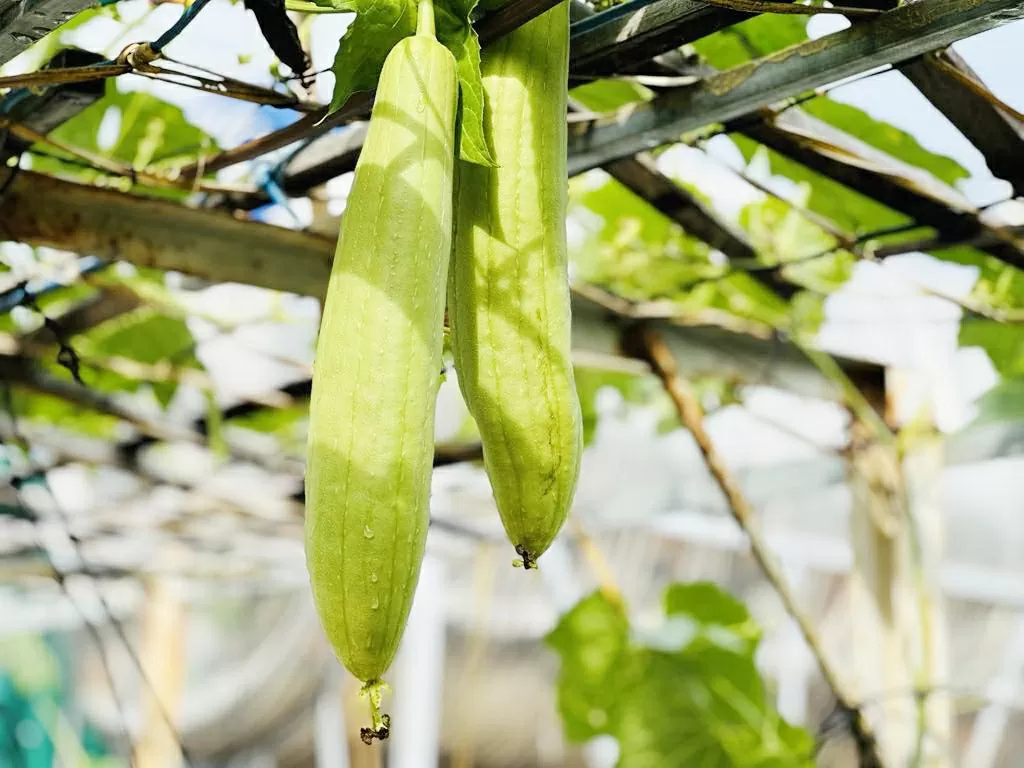3 things to avoid when eating squash: do not eat squash that is bitter, unripe, or fibrous. (Photo: Ban Mai) |
Do not eat bitter melon
Bitter melons are likely to contain a lot of cucurbitacins. This is a group of natural chemical compounds with a very bitter taste, found in many plants in the cucurbitaceae family including squash, gourds, winter melons, pumpkins, and cucumbers. These compounds play a role in protecting the plant against insects and leaf-eating animals.
Normally, squash varieties on farms and families have been selected to eliminate or reduce the amount of cucurbitacin. However, cucurbitacin can still reappear due to a number of reasons such as cross-pollination with wild squash, substandard seeds, adverse environments (drought, saline soil, etc.).
According to the Journal of Clinical and Diagnostic Research , people who eat squash contaminated with cucurbitacin may experience symptoms such as nausea and vomiting, diarrhea, severe abdominal pain, dizziness, and fatigue. Severe cases can cause severe dehydration, low blood pressure, and even require hospitalization.
In 2018, a poisoning incident in India due to drinking bitter-tasting bottle gourd juice left many people hospitalized, including one person who died from multiple organ failure.
Do not eat raw or underripe squash.
Undercooked squash may contain compounds that irritate the digestive tract, such as saponins or digestive enzyme inhibitors. These substances are usually destroyed when squash is properly cooked.
According to Healthline , people who eat undercooked squash may experience stomach pain, stomach cramps, bloating, flatulence, diarrhea, nausea, and risk of infection.
Do not eat old, fibrous squash.
As squash ages, it becomes fibrous, hard, and seed-filled. Eating the wrong type of squash can irritate the digestive system without providing any nutritional value. Risks include indigestion or intestinal obstruction, especially in children or people with intestinal problems; abdominal pain or discomfort; choking if the hard seeds are swallowed; the fibers can injure the throat or intestines.
Therefore, consumers should choose small to medium-sized, soft squash. When cutting it open, if the seeds are hard, discolored, and the flesh is dry and fibrous, it should be discarded.
Benefits of squash
Not only is squash easy to prepare, it also offers many health benefits thanks to its rich fiber, vitamin, and antioxidant content.
One of the outstanding benefits of squash is that it aids digestion. Squash contains a lot of water and soluble fiber, which helps improve bowel movements, prevent constipation and support a healthy digestive system. In addition, squash also has a cooling effect on the body, making it very suitable for use in summer or hot climates.
Luffa is also very suitable for people who are lose weight because it is low in calories and fat. In addition, this fruit contains vitamin C, which helps strengthen the immune system, supports skin health and protects the body from free radicals.
In traditional medicine, squash is also used as a food that helps to cool the body, is diuretic, helps eliminate toxins and is good for the liver. Some studies also suggest that squash can help stabilize blood sugar, but more scientific evidence is needed to confirm this.
Source: https://baoquocte.vn/nhung-luu-y-khi-an-muop-de-dam-bao-suc-khoe-314652.html



























![[Photo] National Assembly Chairman attends the seminar "Building and operating an international financial center and recommendations for Vietnam"](https://vphoto.vietnam.vn/thumb/1200x675/vietnam/resource/IMAGE/2025/7/28/76393436936e457db31ec84433289f72)










































































Comment (0)